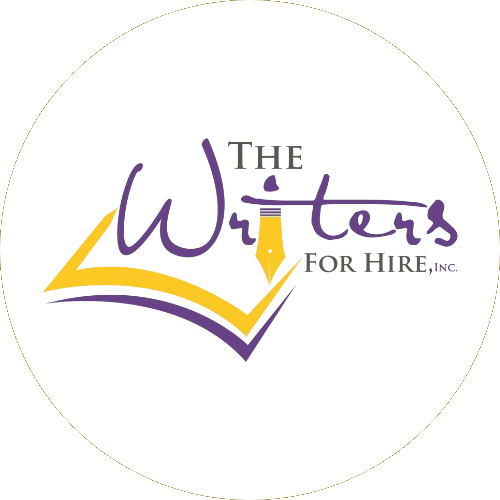How to Schedule for Writing a Book
April 14, 2023
Everyone dreams about writing their life story someday. Some even start writing but by the end of the first chapter, it quickly becomes apparent that finishing the book requires a great deal of commitment and a robust schedule to keep on track.
Becoming an author can be very rewarding, not only if your book does well, but also because of the new skills you will learn during the writing process.
By writing a book, you can tell your story in your own way, change other people’s lives, and even inspire whole generations.
If you are writing your first book, you are most likely employed full-time and need to schedule your writing time in the evenings and weekends, which also requires endurance and a whole lot of dedication.
In this article, we will look at what you can expect when writing a book, how much time you will likely spend writing, and some great strategies to keep your writing project moving along swiftly.
We will also explore the amount of work involved in the book writing process—the editing, proofreading, and re-writing stages—and the main milestones you must set to succeed.
What to Expect When Writing a Book
The first thing you should know is that writing a book takes time, a lot of time in fact, so settle in for the long haul.
That being said, the book-writing process will, in most cases, excite and satisfy you more than you expected. Here's what you can expect from the journey.

Prepare to do a ton of research.
The amount of research you will need to do will depend greatly on the type of book you are writing. A fictional novel by nature does not have to be factual; however, most writers prefer to include accurate information throughout their stories to make them more plausible.
However, nonfiction books, company history books, and corporate histories are completely different animals and require accurate and detailed research. You will also need to conduct extensive interviews with various professionals to capture their knowledge and experiences.
You will first need to make a list of your interviewees, research them, and prepare your questionnaires. Then, you must conduct the interviews and follow up as much as required.
The quality of your research will determine the richness of your book. You want to give your readers a great experience; extensive research does just that. It’s not only important to include facts during the book writing process, but also to include context.
Let’s assume you are writing a book about your ancestors in 1920s Paris. You may need to research what was fashionable at that time, what people ate, how different demographics lived, the typical jobs at the time, and so forth. Fortunately, there are a number of online sources that teach you how to research for a book.
Lastly, it’s important to make sure you read as much as you write. You really want to compile a list of books that fall roughly in the same genre as the one you are writing to get an idea of the accepted standards.
You may want to focus on reading books that are critically acclaimed; however, caution is advised here. While reading is important, you should not lose your own voice in the process.
First drafts are not always great.
Even the best writers go through a process that starts with unpacking their main ideas first and then refining, editing, and adding more color later.
The secret is not to put too much pressure on yourself when writing the first draft because it is during this stage that some of your most powerful sentences, scenes, plot lines, and ideas manifest.
First drafts are best written by relying on your first instinct, which is usually the right one. Overanalyzing your writing can be counterproductive.
You don’t have to write front to back.
Sometimes, when we are busy writing a chapter at the beginning of a book, inspiration strikes unexpectedly, and we feel compelled to write down a new idea that is nearer to the end of the story.
If you restrict yourself to writing the book in front-to-back order, you may forget the idea that popped into your head and lose out on a potentially great addition to your story. Tell the story as it comes to you and organize the book later.
Outlines are great for keeping organized.
Making lists with short synopses of what you want to be incorporated in each chapter is not only a great way to stay organized, but it also helps focus your attention on the task at hand.
You may also find that you put all your thoughts down in chronological order in your first draft, which is perfectly fine, but outlines can help you to present your scenes out of order later to help create intrigue and tension.
Prepare for multiple revisions.
Writing a book requires an enormous amount of focus and attention to detail. This can lead to writing fatigue, which can affect your ability to look at your work objectively and stunt your creativity.
A good approach is to write the first draft and then take a break from your work for about a week or two before you start revising.
This allows your brain to recharge and gain a new perspective. You will often find that after a lengthy break, when you read your work again, you more easily pick up on poor vocabulary, sentence structures, and inconsistencies in the storyline.
The more revisions you schedule with good breaks in between, the better quality your book will be.
Prepare to get stuck.
The book-writing process is complex to say the very least and writer’s block is not a myth. The easiest part of writing a book is developing the main idea or theme of the book.
From there, you need to develop the characters, scenes, detailed storylines and setting descriptions, conversation, and so on (yes… even nonfiction books need character development). These are all fairly intricate skills to refine, and you may find at times that you simply don’t know how to develop a certain area of your book.
You may also have too many different options for which direction to take in your story and can’t decide which would be best. Getting stuck is a big part of the writing process, but there are several ways to strike up inspiration.
Sometimes, just sitting in front of your computer waiting for ideas to pop into your head is the worst thing you can do. Try to find inspiration out in the real world. Meet friends for lunch or a drink, go for a walk in the park, or do a weekend trip away. Whatever helps you relax may just help to get your creativity back and your thoughts flowing.
Get as much feedback as possible.
Although any feedback on your work is very valuable, you should try to get objective feedback from other writers you don’t know. Having a close relationship with someone who reviews your work may result in the feedback not being entirely objective or brutally honest.
Even though you can and should maintain veto power, feedback helps you improve your work, generate new suggestions, perhaps pick up on some issues you have not considered, and maybe get a bigger-picture perspective.
When asked why feedback is so important, writer and editor Jennifer Rizzo at The Writers For Hire said:
“When you are writing a book, you often become too close to the subject matter or the book’s contents to really give it a critical and unbiased review. Having that second (or third) set of eyes to look over your book is critical in ensuring that the chapters all flow well together, that there are not any big holes or inconsistencies, and that the book has the right tone for your target audience.”
Prepare to get exhausted.
Writing a book can take a toll on various aspects of your well-being. If you do not plan regular breaks in your book-writing schedule, you may start to notice some mental fatigue.
The book writing process requires intensive mental efforts, such as constant creative thinking, problem-solving, and decision-making.
You may also notice some emotional strain, especially if you are writing about difficult personal experiences.
Lastly, you will likely spend a lot of time sitting up at a desk or computer, which can be physically draining, so make sure to take regular breaks.
Prepare to forget some details.
By the time you have written 70,000 to 80,000 words, the small details in your book can be tricky to recall from memory.
Keeping notes on your story’s focus and timelines is a great way to overcome this. Remember, the details are important, and any inconsistencies here could damage what may be a great book.
Time Allocation & Editorial Calendar
The time it takes to write a book can vary greatly, depending on several factors such as the length of the book, the author’s writing style, and their level of experience. Some authors can write a book in a few months, while others may take years.

On average, a book can take between six months to two years to complete.
However, some books can take even longer. This is especially true if you are juggling other commitments such as a full-time job or family responsibilities.
Planning a book-writing schedule can help you stay on track and meet your goals.
Here are some tips for creating a good writing schedule:
- Set a realistic deadline. Determine when you want to finish your book and work backward to determine how much time you have to write. Be realistic about the amount of time you can devote to writing each day or week.
- Break your book into manageable chunks. Divide your book into sections or chapters and set goals for completing each section or chapter. This will help you stay focused and motivated.
- Determine your writing time. Figure out the time of day when you are most productive and creative. This could be early morning, late at night, or during your lunch break. Schedule your writing time during your most productive hours.
- Be consistent. Try to write at the same time every day or every week to establish a routine. This will help you stay disciplined and make progress.
- Build in flexibility. Life can be unpredictable, so build in some flexibility to your writing schedule. Allow for unexpected events, writer’s block, or other setbacks.
- Use a calendar or planner. Use a calendar or planner to map out your writing schedule and track your progress. This will help you stay organized and motivated.
- Be accountable. Share your writing goals with a friend or writing group and check in regularly to stay accountable. This can provide motivation and support when you need it.
Rizzo adds that:
“Editorial calendars are a great way to ensure that your book project stays on task and that you meet all deadlines. While there can be some wiggle room within the calendar, setting dates and goals (and sticking with them) is really vital to keep your project moving forward in a timely manner. Without having a solid editorial calendar, projects can easily get sidelined. This is probably one of the main reasons so many books are started but never finished.”
Common Obstacles

When writing a book, there are several obstructions that can occur that can slow down progress or even prevent an author from completing their work.
Here are some common obstructions that writers may face:
- Writer’s block. This is a common obstacle that can occur when a writer feels stuck and unable to move forward with their writing. It can be caused by a variety of factors such as self-doubt, lack of inspiration, or fear of failure.
- Distractions. Writing a book requires a great deal of focus and concentration. Distractions such as social media, emails, or other responsibilities can disrupt a writer’s flow and make it difficult to stay on track.
- Time constraints. Many writers have other commitments such as work, family, or other responsibilities that can make it difficult to find the time to write.
- Perfectionism. Some writers may get caught up in trying to make their writing perfect and spend too much time editing and revising.
- Lack of motivation. Writing a book is a long-term project, and it can be easy to lose motivation along the way.
- Research obstacles. Depending on the topic of the book, the author may face research obstacles such as difficulty finding information or lack of access to sources.
Imposter Syndrome
Imposter syndrome is one of the biggest challenges some new writers face. It is a psychological phenomenon where some writers doubt their own abilities and feel like they are not “real” writers, even though they may have achieved some success or recognition for their work in the past.
Imposter syndrome can manifest in a variety of ways, including:
- Feeling like a fraud or impostor when receiving praise or recognition for their writing.
- Believing that their writing is not good enough, even if others disagree.
- Comparing themselves to other writers and feeling inadequate.
- Feeling like they are not a “real” writer because they don’t write full-time or have a traditional publishing contract.
- Struggling with writer’s block or procrastination due to feelings of self-doubt.
Imposter syndrome can be caused by a variety of factors, including a fear of rejection or failure, unreasonable expectations, and perhaps a lack of confidence.
It can be detrimental to a writer’s mental health and productivity, as it can lead to self-sabotage and a lack of creativity.
To overcome writer’s imposter syndrome, it is very important for new writers to recognize their own achievements and value, and for them to develop a positive and realistic self-image.
This can be achieved by reframing negative self-talk, looking for support from other writers or a writing group, and setting realistic goals and expectations.
It is also important to remember that everyone experiences self-doubt and that it is a natural part of the creative process.
Book Writing Strategies
If you are serious about finishing your book, there are several great ways to ensure you keep your project on track.
A great project management tool many writers use is the SMART objective tool, which is a well-established instrument for planning and achieving goals.

Here is a breakdown of what each letter in the acronym SMART stands for:
- Specific. The objective should be clear and specific. It should answer the questions of what, why, who, and how.
- Measurable. The objective should be measurable in some way, so you can track progress and determine when it has been achieved. It should answer the questions of how much, how many, or how will you know when it’s complete.
- Achievable. The objective should be achievable and realistic, given the resources, time, and other constraints you have.
- Relevant. The objective should be relevant to the overall project or goal and contribute meaningfully to its success.
- Time-bound. The objective should be time-bound, with a clear deadline or timeline for completion. It should answer the question of when.
Additionally, you may want to set yourself some realistic word count goals. Be careful not to over-commit, but, If you want to write your book fast, good word count ambitions could be:
- 1,500-2,000 words per session
- 9,000-15,000 words per week
- 35,000-50,000 words per month
When asked how many words per day new writers should consider committing to, Rizzo says:
“I don’t know that there is really a number of words that new writers should commit to. However, I do recommend that all writers commit a good chunk of time to writing each day (or each week, depending on deadlines and your schedule). Having a consistent block of time set aside for writing is much more effective than trying to get a few minutes in here or there. For one, scheduling time to write will ensure that you actually take the time to write. In addition, giving yourself uninterrupted writing time helps keep the words and thoughts flowing.”
Establishing a consistent writing routine is the best chance of achieving your word count targets. Plan your routine around your available time and the time of day you are most productive and do your best to balance your writing with all your other commitments.
Procrastination is one of the evil forces you must combat, so try not to skip any writing sessions on your schedule. Online distractions such as watching the news or scrolling social media can also tempt you away from your tasks, so it may be helpful to use a site blocker for the duration of your schedule.
It is essential where you write. Try to find a space away from other people where you feel calm, focused, and free from noise and other distractions. You may also want to invest in a good book writing software, a few good ones to consider are:
- Scrivener
- Milanote
- FocusWriter
- The Reedsy Book Editor
Another great motivator is to incentivize yourself for completing chapters and drafts. These incentives can be anything you like, such as booking a holiday once your book is done or a dinner out at a fine restaurant when you complete a chapter. The key is to reward yourself for the hard work you do.
Lastly, try not to get caught up in the stress of writing. The more you enjoy the writing process, the more dynamic your writing will be.
How much work can I expect?
The amount of work involved in writing a book can vary greatly, depending on a number of factors, including the length and complexity of the book, your writing speed and experience, and the amount of research or other preparation required.

Writing a book typically involves several stages, including planning, drafting, revising, and editing.
The planning stage may involve outlining the book's structure, developing characters, and researching the subject matter.
The drafting stage involves actually writing the first draft of the book, which can take weeks, months, or even years, depending on the length and complexity of the book and your pace.
The revising stage involves reviewing and revising the first draft, which may require multiple rounds of edits and rewrites. This stage can also take several weeks or months. Finally, the editing stage involves proofreading the manuscript for errors and polishing the language and style.
Overall, writing a book can be a significant undertaking that requires a lot of time, effort, and dedication. It is essential for you to be prepared for the amount of work involved and to have realistic expectations for the process.
The Editing Phase
The editing phase of a new book involves several stages and tasks to ensure that the manuscript is polished and ready for publication. Here are some of the tasks involved in the editing phase:
- Developmental Editing. This involves looking at the big picture of the manuscript, including plot, pacing, characterization, and overall structure. The editor may suggest changes or revisions to improve the flow and coherence of the story.
- Line Editing. This involves reviewing the manuscript line by line to improve the language and style. The editor may suggest changes to sentence structure, word choice, and overall tone to make the manuscript more engaging and readable.
- Copy Editing. This involves checking the manuscript for grammar, punctuation, spelling, and other errors. The editor may also ensure consistency in style and formatting.
- Proofreading. This involves a final check for errors in the manuscript before publication.
Throughout the editing phase, the editor should work closely with you to ensure that your vision for the book is realized while also ensuring that the book meets publishing standards. The editor may provide feedback and suggestions, and you may need to revise and rewrite parts of the manuscript based on the editor’s recommendations.
The Re-Writing Phase
The rewriting phase of a book typically involves revising and improving the manuscript based on feedback from editors, beta readers, or your own assessment. Here are some of the tasks involved in the rewrite phase:
- Reviewing feedback. You should review feedback from editors, beta readers, or other sources to identify areas that need improvement.
- Revising plot and characters. You may need to make changes to the plot or characters to address feedback or improve the story.
- Revising structure and pacing. You may need to adjust the structure and pacing of the story to improve the flow and coherence of the book.
- Revising language and style. You may need to revise the language and style of the book to make it more engaging and readable.
- Conducting more research. If the book is based on research, you may need to revise sections to ensure accuracy and relevance.
- Adding or deleting content. You may need to add or delete content to improve the story or address feedback.
Throughout the rewrite phase, you should work closely with editors or beta readers to ensure that the book is improved and polished to the best possible version. The rewriting phase can take significant time and effort, but it is an important step in the process of creating a quality book.
The Proofreading Phase
The proofreading phase of a new book is an important step in the publishing process that involves checking the manuscript for errors and ensuring that it meets publishing standards. Some of the tasks involved in the proofreading phase include:
- Checking for typos and spelling errors. The proofreader will review the manuscript line by line to check for spelling errors, typos, and grammatical errors.
- Checking for consistency. The proofreader will check for consistency in spelling, punctuation, and formatting throughout the manuscript.
- Checking for accuracy. The proofreader will verify that all facts, dates, and names mentioned in the book are accurate and consistent.
- Checking for formatting errors. The proofreader will ensure that headings, subheadings, fonts, and margins are consistent and meet publishing standards.
- Checking for layout and design errors. The proofreader will check for errors in the layout and design of the book, such as page numbering, spacing, and alignment.
- Checking for legal and ethical issues. The proofreader will verify that the manuscript does not contain any legal or ethical issues that could pose a risk for you or the publisher.
- Communicating with the author or editor. The proofreader may need to communicate with you or your editor to clarify certain passages or resolve any issues that arise during the proofreading process.
Setting Milestones
It goes without saying that writing a book is a gigantic undertaking that involves a number of critical steps.
To give yourself the best chance of success, plan every step meticulously and set yourself some big-picture milestones even before you start writing.

Setting milestones can help your writing stay organized and focused throughout the writing and publishing process. It can also help ensure that the book is completed and published in a timely and efficient manner. Some milestones to consider include:
- A deadline for completing the first draft. Setting a deadline for completing the first draft of the manuscript can help you stay focused and motivated throughout the writing process.
- A deadline for completing revisions. After receiving feedback from editors or beta readers, set a deadline for completing revisions to ensure that the manuscript is polished and ready for publication.
- A deadline for submitting to publishers or agents. If you plan to submit the manuscript to publishers or literary agents, setting a deadline for submission can help ensure that the manuscript is ready, and that the submission process is organized and efficient.
- Publication date. Once the manuscript has been accepted for publication, setting a publication date can help you and the publisher coordinate the marketing and promotion of the book.
- Marketing and promotional milestones. You may want to set milestones for marketing and promoting the book, such as securing book reviews, scheduling book events or signings, or reaching out to media outlets for interviews or features.
When asked what milestones she considers to be critical, Rizzo says:
“The first important milestone is coming up with an outline for your book. This outline helps you to organize your thoughts, know exactly what information you will write about in each chapter or section, and have an idea for the flow from start to finish.
After the outline, it’s imperative to decide what tone and style you want your book to be written in. This is the step where you will need to do competitive research and nail down your target audience to determine what tone/style works best for them.
Once you have those two steps taken care of, the next real major milestone is writing each individual section or chapter of your book. That is followed by editing and peer review, as well as necessary revisions.
Finally, before your book is ready for publication, you will need to have a proofreader go through the entire thing to check for any grammar or spelling issues, as well as any inconsistencies.”
Writing a book can be a very challenging but rewarding experience. It will push your determination and commitment to new levels.
The key to success is planning a robust schedule and sticking to your writing sessions and deadlines.
You will get frustrated throughout the process and you might even at times want to give up, but, if you push through all the emotional and other challenges, you will find the ultimate sense of accomplishment waiting for you on the other side.































